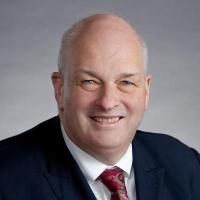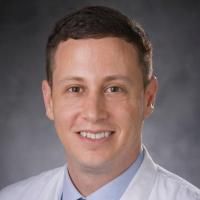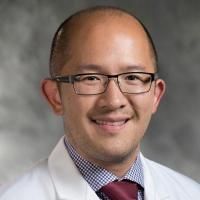Characteristics of patients who return to work after undergoing surgery for cervical spondylotic myelopathy: a Quality Outcomes Database study.
Date
2023-05
Journal Title
Journal ISSN
Volume Title
Repository Usage Stats
views
downloads
Citation Stats
Attention Stats
Abstract
Objective
Return to work (RTW) is an important surgical outcome for patients who are employed, yet a significant number of patients with cervical spondylotic myelopathy (CSM) who are employed undergo cervical spine surgery and fail to RTW. In this study, the authors investigated factors associated with failure to RTW in the CSM population who underwent cervical spine surgery and who were considered to have a good surgical outcome yet failed to RTW.Methods
This study retrospectively analyzed prospectively collected data from the cervical myelopathy module of a national spine registry, the Quality Outcomes Database. The CSM data set of the Quality Outcomes Database was queried for patients who were employed at the time of surgery and planned to RTW postoperatively. Distinct multivariable logistic regression models were fitted with 3-month RTW as an outcome for the overall population to identify risk factors for failure to RTW. Good outcomes were defined as patients who had no adverse events (readmissions or complications), who had achieved 30% improvement in Neck Disability Index score, and who were satisfied (North American Spine Society satisfaction score of 1 or 2) at 3 months postsurgery.Results
Of the 409 patients who underwent surgery, 80% (n = 327) did RTW at 3 months after surgery. At 3 months, 56.9% of patients met the criteria for a good surgical outcome, and patients with a good outcome were more likely to RTW (88.1% vs 69.2%, p < 0.01). Of patients with a good outcome, 11.9% failed to RTW at 3 months. Risk factors for failing to RTW despite a good outcome included preoperative short-term disability or leave status (OR 3.03 [95% CI 1.66-7.90], p = 0.02); a higher baseline Neck Disability Index score (OR 1.41 [95% CI 1.09-1.84], p < 0.01); and higher neck pain score at 3 months postoperatively (OR 0.81 [95% CI 0.66-0.99], p = 0.04).Conclusions
Most patients with CSM who undergo spine surgery reenter the workforce within 3 months from surgery, with RTW rates being higher among patients who experience good outcomes. Among patients with good outcomes who were employed, failure to RTW was associated with being on preoperative short-term disability or leave status prior to surgery as well as higher neck pain scores at baseline and at 3 months postoperatively.Type
Department
Description
Provenance
Subjects
Citation
Permalink
Published Version (Please cite this version)
Publication Info
Bergin, Stephen M, Giorgos D Michalopoulos, Christopher I Shaffrey, Oren N Gottfried, Eli Johnson, Erica F Bisson, Michael Y Wang, John J Knightly, et al. (2023). Characteristics of patients who return to work after undergoing surgery for cervical spondylotic myelopathy: a Quality Outcomes Database study. Journal of neurosurgery. Spine, 38(5). pp. 530–539. 10.3171/2023.1.spine221078 Retrieved from https://hdl.handle.net/10161/27934.
This is constructed from limited available data and may be imprecise. To cite this article, please review & use the official citation provided by the journal.
Collections
Scholars@Duke

Christopher Ignatius Shaffrey
I have more than 25 years of experience treating patients of all ages with spinal disorders. I have had an interest in the management of spinal disorders since starting my medical education. I performed residencies in both orthopaedic surgery and neurosurgery to gain a comprehensive understanding of the entire range of spinal disorders. My goal has been to find innovative ways to manage the range of spinal conditions, straightforward to complex. I have a focus on managing patients with complex spinal disorders. My patient evaluation and management philosophy is to provide engaged, compassionate care that focuses on providing the simplest and least aggressive treatment option for a particular condition. In many cases, non-operative treatment options exist to improve a patient’s symptoms. I have been actively engaged in clinical research to find the best ways to manage spinal disorders in order to achieve better results with fewer complications.

Oren N Gottfried
I specialize in the surgical management of all complex cervical, thoracic, lumbar, or sacral spinal diseases by using minimally invasive as well as standard approaches for arthritis or degenerative disease, deformity, tumors, and trauma. I have a special interest in the treatment of thoracolumbar deformities, occipital-cervical problems, and in helping patients with complex spinal issues from previously unsuccessful surgery or recurrent disease.I listen to my patients to understand their symptoms and experiences so I can provide them with the information and education they need to manage their disease. I make sure my patients understand their treatment options, and what will work best for their individual condition. I treat all my patients with care and concern – just as I would treat my family. I am available to address my patients' concerns before and after surgery. I aim to improve surgical outcomes for my patients and care of all spine patients with active research evaluating clinical and radiological results after spine surgery with multiple prospective databases. I am particularly interested in prevention of spinal deformity, infections, complications, and recurrent spinal disease. Also, I study whether patient specific variables including pelvic/sacral anatomy and sagittal spinal balance predict complications from spine surgery.

Khoi Duc Than
I chose to pursue neurosurgery as a career because of my fascination with the human nervous system. In medical school, I developed a keen interest in the diseases that afflict the brain and spine and gravitated towards the only field where I could help treat these diseases with my own hands. I focus on disorders of the spine where my first goal is to help patients avoid surgery if at all possible. If surgery is needed, I treat patients using the most advanced minimally invasive techniques available in order to minimize pain, blood loss, and hospital stay, while maximizing recovery, neurologic function, and quality of life. In my free time, I enjoy spending time with my family and friends. I am an avid sports fan and love to eat. I try to stay physically fit by going to the gym and playing ice hockey.
Unless otherwise indicated, scholarly articles published by Duke faculty members are made available here with a CC-BY-NC (Creative Commons Attribution Non-Commercial) license, as enabled by the Duke Open Access Policy. If you wish to use the materials in ways not already permitted under CC-BY-NC, please consult the copyright owner. Other materials are made available here through the author’s grant of a non-exclusive license to make their work openly accessible.
